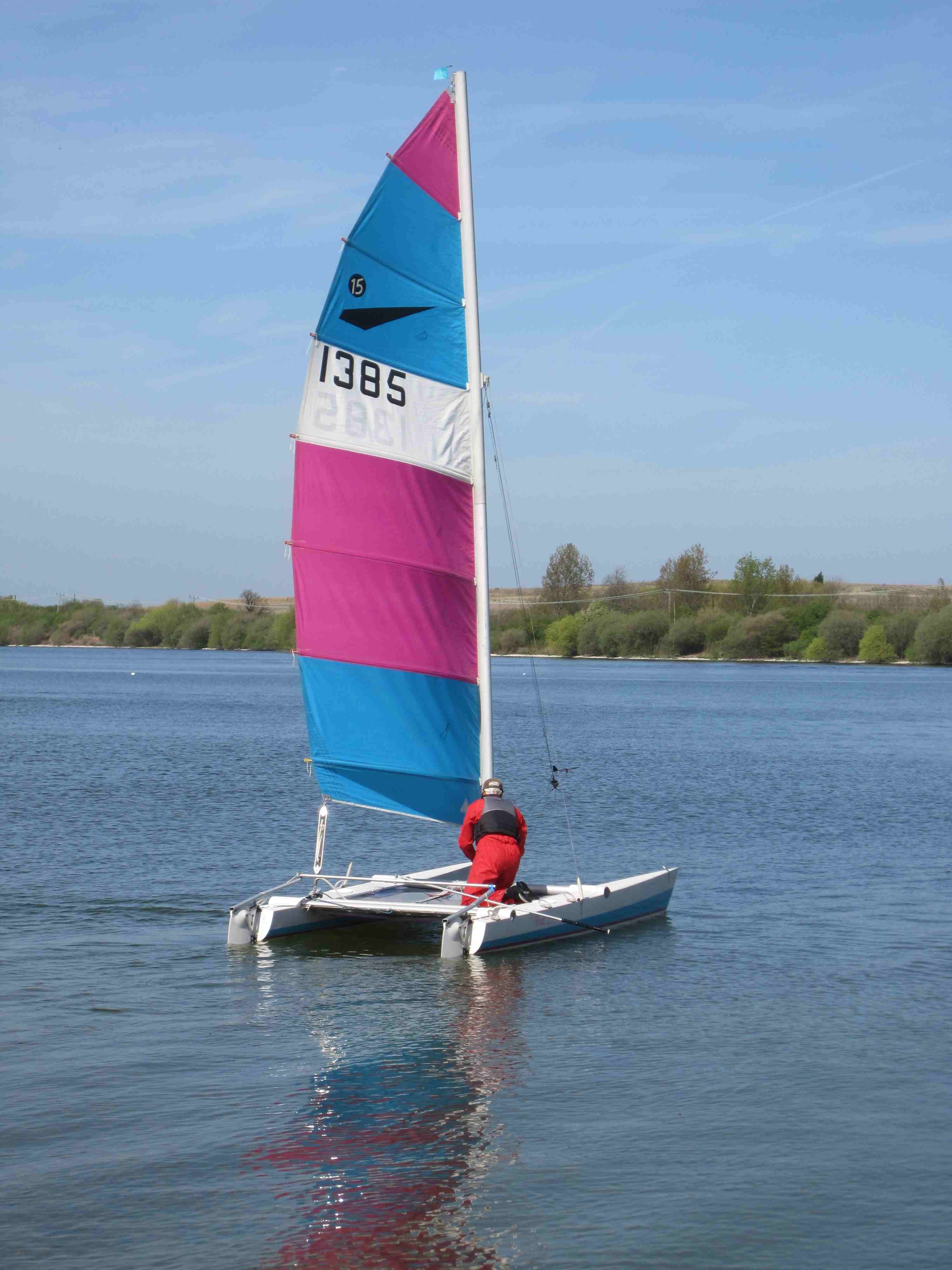‘C’ grade trainers arrive at their course with a bag of ideas, a few shock and awe tricks, spout their stuff and leave; ‘B’ grade trainers ask what the trainee wants to learn, agrees, and runs with same agenda they’ve been using for the last ten years. ‘A’ grade trainers blend what the trainees say they want with what they already know the trainees are going to ask for and what is possible. If any need to check this, attend a police speed awareness course. ‘A+’, then, for Brian Phipps - craftsman, author, Mr Windsport, and good egg - who led the April training course at Stewartby for the Association. We, seven trainees, were invited to say what we needed; Brian already anticipated pretty much what we would say, and he brought together the broad themes of race tactics, boat tuning, and boat handling into a package that attended to the key points: confidence on the race start line, skills at the race marks, boat speed up- and down-wind, and so on. I’ve had a 25 year break from boat sailing and with very rusty skills, outdated knowledge and shaky confidence, I have it all to learn again. Others had varying experience; all were good sailors leaving me at the back for most of the weekend, but I learned – as Brian intended – from those around me and from his measured encouragement: ‘The sail won’t go out if you’re kneeling on the mainsheet!’ We’d brought our boats and arrived on Thursday and Friday at Stewartby, a friendly, informal little club, welcomed by club committee member and Dart sailor Mark Norman, who co-ordinated, operated the gate, arranged and managed, drove the rib, got the curry, and had a friendly word with everybody. The weather was wet-suit warm and cloudless with light winds and puffs just enough for a capsize if we tried really hard. |



